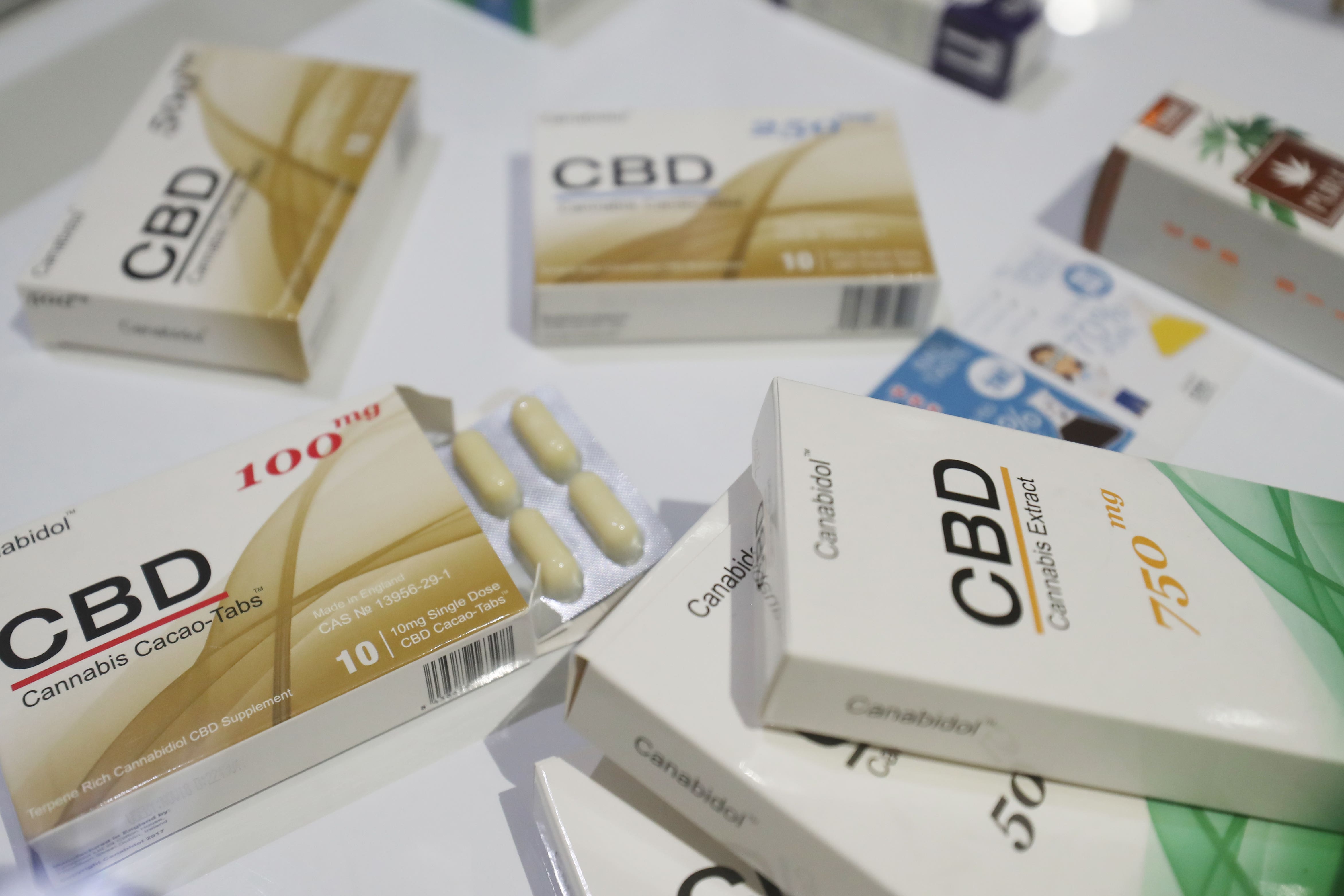Food watchdog cuts recommended maximum daily amount of cannabidiol
The cut followed evidence of some adverse effects on the liver and thyroid, the Food Standards Agency said.

The recommended maximum amount of cannabidiol (CBD) healthy adults should consume a day has dropped from 70mg to 10mg following evidence of adverse effects on the liver and thyroid, the food safety watchdog has said.
The Food Standards Agency (FSA) has issued new precautionary advice on CBD, recommending healthy adults should limit their consumption of CBD from food to 10mg per day, which is about four to five drops of 5% oil.
The FSA published consumer advice in February 2020 which recommended that healthy adults not take more than 70mg of CBD per day, or about 28 drops of 5% CDB, but warned that this “doesn’t mean that these levels are definitely safe, but that the evidence we have suggests adverse health effects could potentially be seen above this”.
Since then, a joint subgroup of the Committee on Toxicity (COT) and the Advisory Committee on Novel Foods and Processes, two independent science committees that advise the FSA, had been reviewing the safety evidence submitted by the CBD industry.
The more CBD you consume over your lifetime, the more likely you are to develop long-term adverse effects, like liver damage or thyroid issues. The level of risk is related to how much you take, in the same way it is with some other potentially harmful products such as alcoholic drinks
CBD sold as a food includes oils, drops or tinctures, gel capsules, sweets and confectionery, bread and other bakery products and drinks.
The FSA said there was no “acute safety risk” by consuming more than 10mg of CBD a day based on available data.
However, above this level and over a period of time, there was evidence of some adverse impacts on the liver and thyroid, with the higher the dose and the more often it is consumed increasing the risks.
Some food products currently on the market contain more than 10mg of CBD per serving, and the FSA said it would work with the industry to “agree a way forward” on these items.
The FSA encouraged consumers to monitor their daily consumption by checking the CBD content of the product and consider if they wished to change it in light of the updated advice.
It continues to advise that CBD is not taken by people in vulnerable groups, including children, people taking medication who have not consulted a medical professional and those who are pregnant, breastfeeding or trying to conceive.
Professor Robin May, chief scientific advisor at the FSA, said: “Our independent advisory committees have reviewed the safety assessments submitted by the industry as part of their novel food applications and we are advising that healthy adults should take no more than 10mg of CBD a day.
“The more CBD you consume over your lifetime, the more likely you are to develop long-term adverse effects, like liver damage or thyroid issues. The level of risk is related to how much you take, in the same way it is with some other potentially harmful products such as alcoholic drinks.
“We encourage consumers to check the CBD content on the product label to monitor their overall daily consumption of CBD and consider if they wish to make changes to how much they take based on this updated advice.”
FSA chief executive Emily Miles said: “We have always advised the public to think carefully about taking edible CBD products and, as with all foods, we continue to review our advice based on the evidence we gather from industry.
“We understand that this change to our advice will have implications for products currently on the market that contain more than 10mg of CBD per serving.
“We will be working closely with industry to minimise the risk so that consumers are not exposed to potentially harmful levels of CBD.”
Bookmark popover
Removed from bookmarks